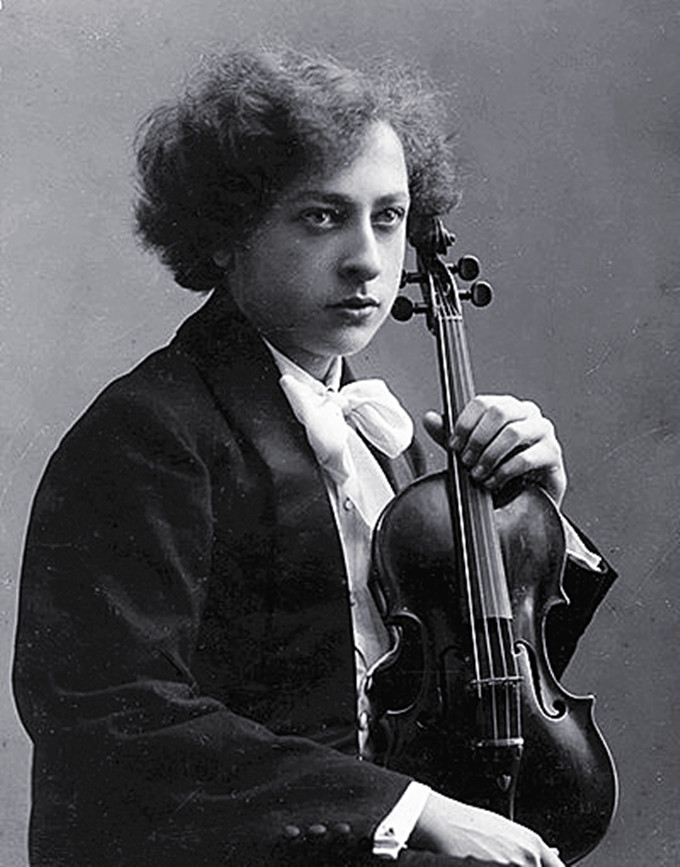|
||||||||||||||||||||||||||
 |
 |
|||||||||||||||||||||||||
|
|

|
|||||||||||||||||||||||
|
|
|
||||||||||||||||||||||
| 亚沙·海菲兹(Jascha·Heifetz 1901-1987) | |||||||||||||||||||||||
| 海菲兹演奏维尼亚夫斯基《波兰舞曲》 | |||||||||||||||||||||||
Jascha Heifetz - Wieniawski Polonaise No. 1 in D Major |
|||||||||||||||||||||||
|
|
|||||||||||||||||||||||
|
音乐历史上的今天
1953年4月17日一个耶路撒冷的狂热分子用一根铁棒袭击了亚沙·海菲兹,伤了他的手臂,因为他在以色列演奏了理查德·施特劳斯的小提琴奏鸣曲,该曲因为施特劳斯与纳粹有过短暂的关系而被禁止在以色列上演。 |
|
||||||||||||||||||||||
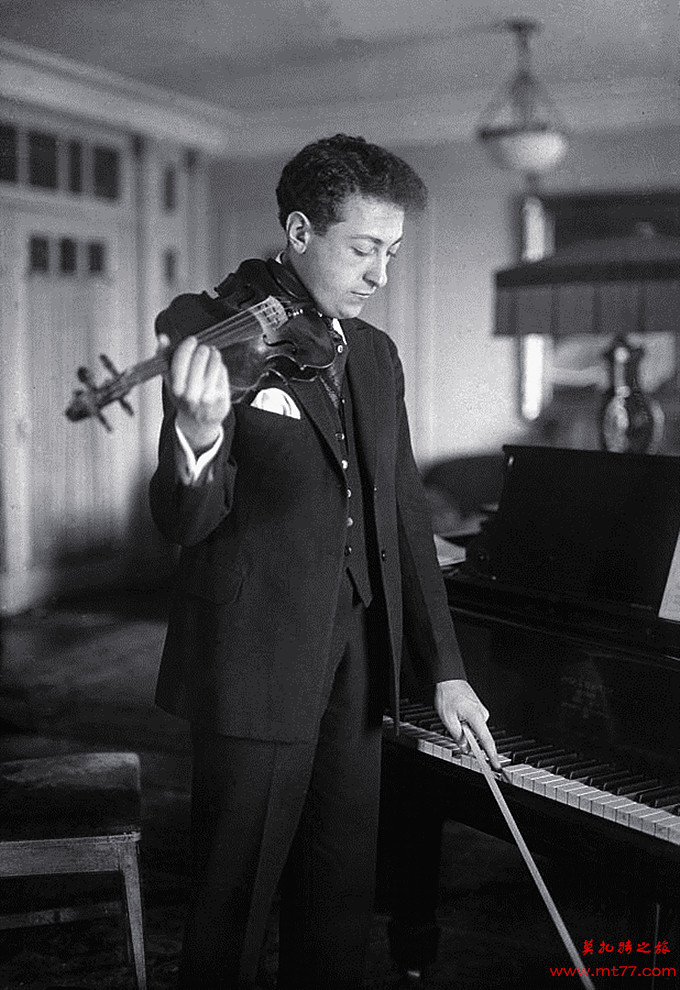 |
|||||||||||||||||||||||
| 亚沙·海菲兹(Jascha·Heifetz) | |||||||||||||||||||||||
|
|
|||||||||||||||||||||||
|
Today in the
history of music On April 17, 1953, a Jerusalem fanatic attacked yasha hafez with an iron bar, wounding his arm as he played in Israel Richard strauss's violin sonata, which was banned in Israel because of strauss's brief association with the nazis. When heifetz made his debut in London in 1920, George Bernard shaw was there.Bernard shaw had always been an astute judge of music criticism at the time, and many of his predictions were later fulfilled.He was so impressed by the 19-year-old's performance that he wrote him a prophecy of astonishing accuracy: My dear heifetz, Your recital made me and my wife very uneasy.Because the kind of superhuman perfection that you're playing if it causes god to be jealous, you're going to die young.I sincerely suggest that you play a little bad music every night before you go to bed instead of praying.No mortal could play so perfectly. George Bernard shaw Yascha heifetz was born in vilna, Lithuania, in 1901, the son of a violin master with the vilna symphony orchestra.When he was three, his father gave him a violin a quarter the size. He could play it in a week.At first he took lessons with his father, but soon overtook him and entered the royal Werner school of music.Before he was five years old, he began his public performance in the hall of a music school packed with audiences.A year later he played Mendelssohn's violin concerto for more than a thousand people. Heffetz graduated from music school at the age of seven and went to st. Peter's to play for auer.But he was not immediately accepted by auer as a student, as was believed, and he had to wait until he was nine years old to enter auer's violin class.Even so, he was the youngest student to enter the st. Petersburg conservatory. According to heifetz, "auer is an incomparable teacher, and I don't think any teacher in the world can match him.Don't ask me how he teaches. I don't know how to explain it to you.Heffetz studied with auer for about six years as a private student and a conservatory student.Apart from teaching him to play sonatas and concertos, auer never taught him etudes or technical pieces, and the professor allowed heffetz to choose his own repertoire. While ORR's students generally have enough skills for a teacher to specialize in music, "he also has a way of solving various skills;He was as meticulous about technique as he was about music, picking up the instrument and demonstrating when necessary.ORR's formula seems to be that the more interested and competent a student is, the more he teaches.The American violinist Albert spradin, who went to Russia in 1913 to perform and attend auer's lectures, gives us some information about auer's teaching."The teenage prodigy," he says, "put auer's other star students in the shade," and he says of the way heffetz played ernst's difficult violin concerto: "he played the first octaves very calmly, with a nonviolent air.Sound strong, smooth and mellow, pure intonation.There is an inner beauty that makes people feel the ups and downs of the phrase."Auer walked nervously back and forth, watching spradin's reaction from time to time."The dark eyes of this miracle boy glowed with pleasure as he effortlessly played the difficult techniques...And from time to time he turned and shrugged his shoulders, as if to say, 'who else can play like me?... While still a student at the conservatory, young heifetz gave concerts in st. Petersburg and other Russian cities.At an outdoor concert in Odessa, 25,000 people gave him a standing ovation.By the time he left Russia, reports of him had spread throughout Europe, and he was only eleven years old when nikesh performed the first Tchaikovsky violin concerto in Berlin.Nikesh, himself one of the few conductors to learn the violin before moving on to conducting, admits he has never heard anyone play as well as the boy.Later heffetz, under nikesh's direction, performed in Vienna and leipzig and conquered the audience like a storm.When he played bruch's violin concerto in g minor at the buchanan mansion in leipzig in 1913, he was said to be the only violinist other than joachim to play solo with the orchestra at such a young age.It was at this concert that Chrysler heard him play for the first time and told zimbalist the legendary words: "you and I should take our violins out and smash them on our knees." Chrysler's quip was not entirely far-fetched.Although Chrysler himself suffered little damage, many accomplished violinists were overshadowed by the rising star.We know that kubrick was one of the victims.According to fleisch, in the early 1900s violinists liked to imitate kubellick's way of playing quick phrases: clear, but not too fast.Since heffetz's appearance on stage, "the young violinists were crazy about the devil's speed and wanted to break records for it." International concerts were suspended in 1914-18 because of the war, and when rumors of an imminent Russian revolution became more difficult, heffetz's father decided to risk the war years by taking his son across the Pacific to make his American debut.The American premiere was on October 27, 1917, at Carnegie Hall in New York.Heffetz was sixteen years old, with a slender build, blue eyes, and neat curly hair.He not only impressed his audience with his brilliant performance, but also with his calm stage presence, which included all the highest class string players in the city.His repertoire included vinyavsky's concerto in d minor, paganini's 24th rhapsody, and tardini's variations on corelli's theme.The New York times critic said: There has never been a more humble player...Mr. Heffetz's voice was peculiarly sweet and pure;His pronunciation is both powerful and smooth...His bow has a rare elasticity and vitality, his left hand has many advantages, playing all kinds of difficult skills absolutely accurate. As heffetz's fame grew, his performance income increased sharply.In December 1919 he earned $2, 250 per concert in the United States, the highest amount paid to a classical musician at the time. In November of that year Chrysler's performance was only $2, 000, and was already considered high. Heffetz made his English debut at the queen's hall in London on May 5, 1920.Thanks to the incredible success of his recordings (70,000 of them had been sold in Britain before he set foot on the land), concert tickets were sold out long before the show.The music times said he was "by far the biggest sensation in the music industry".There was a rush to sign a contract with heifetz, and every show was packed.He achieved the same success all over the world, and his name spread to every continent. Today's video: 1. Heffetz playing vinyavsky's polonaise; 2.2. Yasha hafez - portrait of the artist (1953) answered questions from American college students and played several pieces of music. |
|
||||||||||||||||||||||
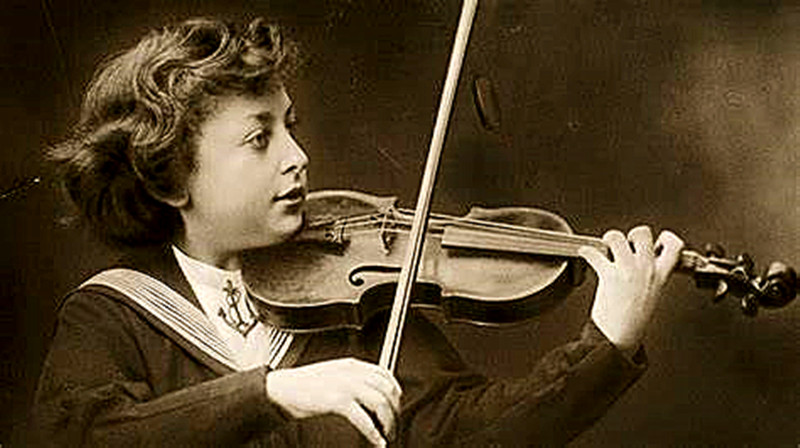 |
|||||||||||||||||||||||
| 亚沙·海菲兹(Jascha·Heifetz) | |||||||||||||||||||||||
| 亚沙·海菲兹是一位俄裔美国小提琴家。许多人认为他是有史以来最伟大的小提琴家。他出生在维尔纳,十几岁时移居美国,他在卡内基音乐厅的首演受到热烈欢迎。 | |||||||||||||||||||||||
| Jascha Heifetz Violinist Jascha Heifetz was a Russian-American violinist. Many consider him the greatest violinist of all time. Born in Vilna, he moved as a teenager to the United States, where his Carnegie Hall debut was rapturously received. | |||||||||||||||||||||||
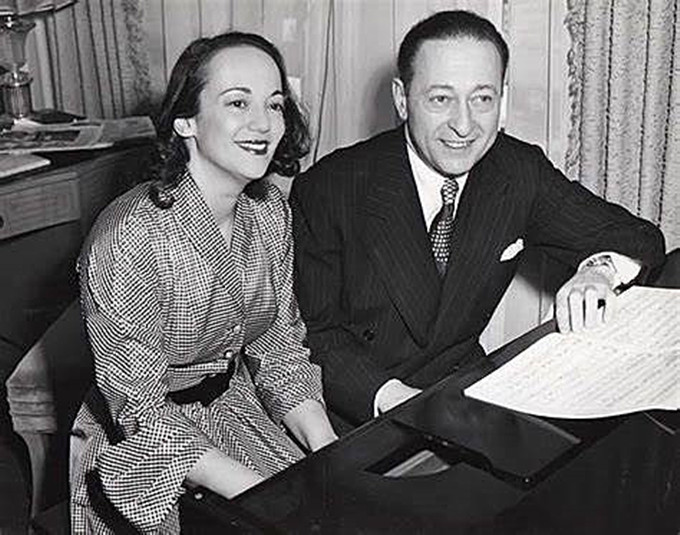 |
|||||||||||||||||||||||
| 亚沙·海菲兹(Jascha·Heifetz)和妻子 | |||||||||||||||||||||||
| 1969年10月31日的《时代》杂志中登载了一篇罗杰·卡恩感人而具有洞察力的文章,他同意萧伯纳的“推测”,认为“为了他的天才付出了他的人生”。海菲茨对小提琴演奏的影响是巨大的。三代小提琴演奏者怀着崇敬的心情低声诵念着海菲茨的名字,海菲茨仍然是他们追求的理想。美国作家、小提琴家亨利·罗斯对海菲茨进行了完美的总结:“如果海菲茨从来没有诞生过,小提琴的演奏水平恐怕就不能达到我们今天这样完美的顶峰,这是他在世界各地的同行们都承认的一个事实!”但是今天这位世界上最著名的小提琴家再也不公开演奏了,他与外界隔绝,孤独地生活在加利福尼亚比弗利山庄一座占地四英亩的装有电动大门的豪华别墅中。 | |||||||||||||||||||||||
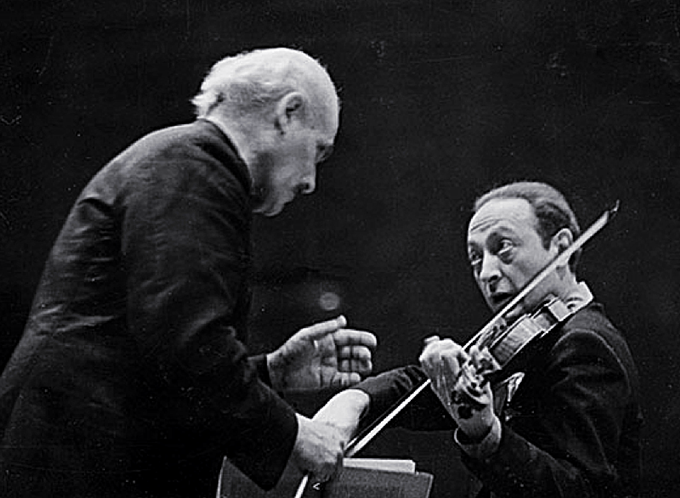 |
|||||||||||||||||||||||
| 亚沙·海菲兹(Jascha·Heifetz)和托斯卡尼尼在排练中 | |||||||||||||||||||||||
| In a moving and insightful article in the October 31, 1969, issue of time magazine, Roger kahn agreed with shaw's "speculation" that "his life was sacrificed for his genius."Heifetz's influence on violin playing was enormous.Three generations of violinists whispered his name with reverence, and heffits remained their ideal.The American writer and violinist Henry rose summed it up perfectly: "had heffetz never been born, the level of violin performance would not have reached the pinnacle of perfection that we are today, a fact acknowledged by his peers around the world!"But today the world's most famous violinist no longer plays in public, isolated and living alone in a four-acre mansion in Beverly hills, California, with electric doors. | |||||||||||||||||||||||
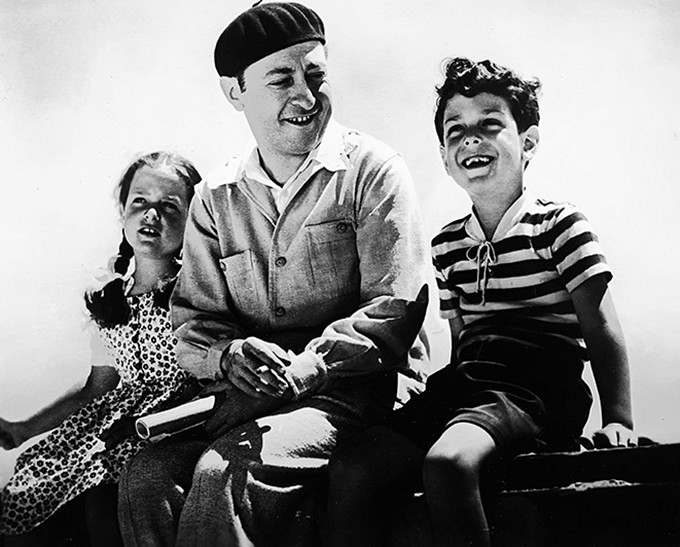 |
|||||||||||||||||||||||
| 亚沙·海菲兹(Jascha·Heifetz)和 他的孩子们在一起 | |||||||||||||||||||||||
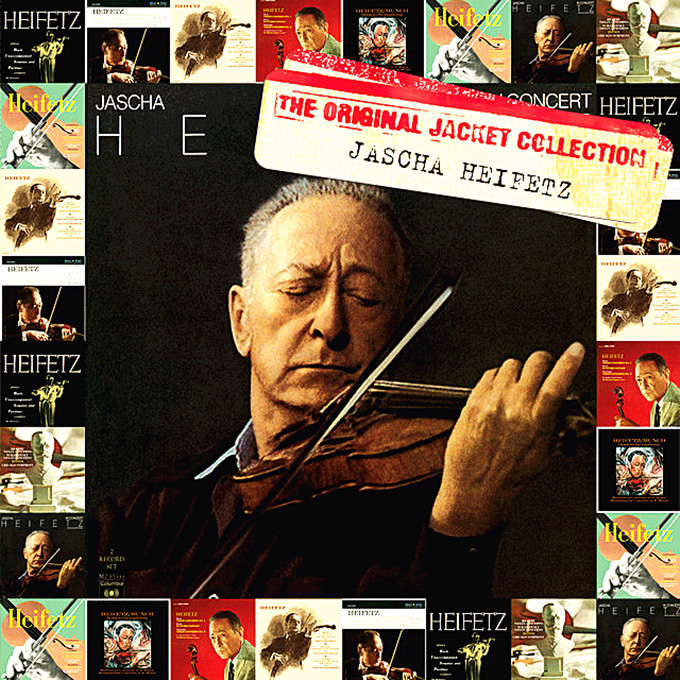 |
|||||||||||||||||||||||
| 亚沙·海菲兹(Jascha·Heifetz)唱片封面 | |||||||||||||||||||||||
|
|
|||||||||||||||||||||||
| 雅莎·海菲兹-艺术家肖像(1953) 海菲茨回答一群大学生的提问,表演门德尔松的《甜蜜的回忆》、勃拉姆斯的《谐谑曲》和《匈牙利舞NO.》。格鲁克的《旋律》、普罗科菲耶夫的《进行曲》、维尼亚夫斯基的《波罗涅兹舞曲》和迪尼库的《霍拉舞曲》。 | |||||||||||||||||||||||
Yasha hafez - portrait of the artist (1953) |
|||||||||||||||||||||||
| Heffetz answered questions from a group of college students and performed Mendelssohn's "sweet memories," Brahms's "SCHERZO" and "Hungarian dance NO.Gluck's "melody", prokofiev's "march", vinyavsky's "polonets" and diniku's "staccato HORA". | |||||||||||||||||||||||
|
|
|||||||||||||||||||||||
| 未得原作者编者授权严禁转载www.mt77.com任何内容 | |||||||||||||||||||||||
|
|
|
||||||
|
copyright © 2003-2005 xilu.com all rights reserved. |
||||||
|
|
||||||

